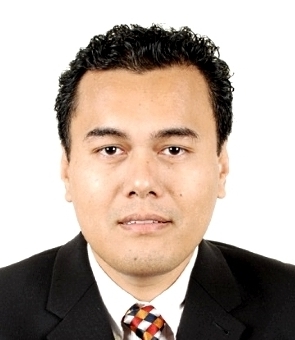
By Prof Dr Mohd Azizuddin Mohd Sani
Yesterday, Malaysians were informed about the new line-up of the cabinet under the leadership of Datuk Seri Ismail Sabri Yaakob, the new prime minister of Malaysia.
Before I am commenting about the line-up, it is interesting to observe people reactions and expectations from this cabinet.
It is clear that many Malaysians hope this cabinet will end the political crisis that managed to force Ismail’s predecessor Tan Sri Muhyiddin Yassin to resign.
With the simple majority of 114 members of parliament (MPs) supporting him as the new prime minister, Ismail managed to defeat Datuk Seri Anwar Ibrahim, the Opposition Leader who only managed to get the supports of 105 MPs.
Therefore, the next task for Ismail is to form a new cabinet for the remaining perhaps one and a half years before the current mandate ends in 2023, and ready for the 15th general election.
With the current climate of Malaysian politics, it has never been silent from political tussles and bickering not only between the government and opposition, but also from within the Barisan Nasional-Perikatan Nasional (BN-PN) coalition as well.
It is clear that this government was formed to just deny the PH government from returning to power after it collapsed in 2020.
Many Malaysians give high hopes to the new Ismail Sabri administration to lead us out from our economic hardships due to the COVID-19 pandemic.
Therefore, it is a major task for Ismail to deliver to the people, and his performance will be evaluated by the people. If he performs, he will for sure be elected again in the next election.
Let us look back to the Cabinet line-up.
One obvious fact is that there is no position for deputy prime minister (DPM). The post of DPM has turned into a political polemic because many MPs want to be appointed as DPM.
Besides Bersatu leaders who have demanded for that post, the coalition partner GPS has also argued that they deserve to get the DPM post as well, or the government can create two DPM posts where one will be allocated for an East Malaysian MP.
It is believed that in order to avoid bickering within the BN-PN government, Ismail decided not to appoint a DPM for the time being, similar to what had happened to Muhyiddin’s cabinet before appointing Ismail as DPM at the end of his premiership in July 2021.
Another interesting fact is that none of the so-called members of Court Cluster was appointed. This means that Ismail obeyed to the conditional support made by Bersatu for not appointing any leader from the Court Cluster.
With the new line-up, it is apparent that Ismail does not accept the proposal of establishing a unity government as proposed by Umno and several opposition leaders.
The idea of smaller government or so-called ‘war cabinet’ proposed by Umno to deal with COVID-19 and the economic situation in the country was also rejected by Ismail.
This is understood because we have only a change of prime minister or head of government, not the whole government.
The government that exists now is the same government under Muhyiddin Yassin.
As predicted, I do not expect any change to the cabinet line-up. It is just like a normal cabinet reshuffle.
Looking at the responses online by netizens, many said this is a recycled cabinet because not many changes have been made except for some ministers like Datuk Khairuddin Aman Razaki of PAS, Datuk Shamsul Anuar Nasarah of Umno and Datuk Redzuan Md Yusof of Bersatu in previous government were dropped and replaced by other Umno MPs who used to be ministers in the BN government, like Tan Sri Noh Omar, Datuk Seri Mahadzir Khalid and Datuk Seri Shahidan Kassim.
This is a strategic move by Ismail to promote leaders who can support him and strengthen his position within Umno.
Some interesting facts are: first, Datuk Seri Ahmad Faizal Azumu of Bersatu, the former Perak menteri besar who lost the confidence vote and advisor to PM Muhyiddin, was appointed minister of youth and sport.
Second, Datuk Saifuddin Abdullah of Bersatu (after defected from PKR) was appointed foreign minister for the second time, previously under the Pakatan Harapan government.
Third, Datuk Idris Ahmad of PAS was appointed minister in the prime minister’s department holding the portfolio of minister of religion. PAS has always wanted to get this position or portfolio and they finally managed to get it.
Fourth, Khairy Jamaluddin swapped his ministry with Datuk Adham Baba. This is a strategic move to ensure the pandemic is dealt effectively.
Ismail promised to all Malaysians that this cabinet is a performance-oriented cabinet and will tackle effectively and efficiently the issues of the COVID-19 pandemic and economic difficulties faced by many Malaysians currently.
He expects his ministers to have short- and long-term plans within their ministries.
He promised that his ministers will show their report cards of performance within 100 days to be seen and evaluated by the public.
Ismail gave his assurances that his cabinet will be alert to the current needs, uphold trustworthiness and accountability, and bring back trust of the public to the government.
He will also accommodate the opposition leaders into the National Recovery Council as part of the National Recovery Plan agenda.
He also urged the public to assist the government in dealing with the pandemic and economic recovery.
All Malaysians have to work in a single unit called ‘Malaysia’s Family’.
Whether this government will be successful, only time will tell.
Definitely, skeptics will raise some doubts about the government because infighting within the BN-PN government can continue hijacking the government’s recovery plan for the country.
But the government now realizes that if they fail to perform, the public or voters will punish them in the next election. So this government cannot afford to fail to the satisfaction of Malaysian public who suffer under current economic and pandemic situations.
Hence, this new cabinet must realize truthfully the agenda of ‘Malaysian Family’, perform now and bring back foreign and public confidences to the country.
(Prof Dr Mohd Azizuddin Mohd Sani is Professor of Politics and International Relations, Universiti Utara Malaysia, UUM.)
ADVERTISEMENT
ADVERTISEMENT


































